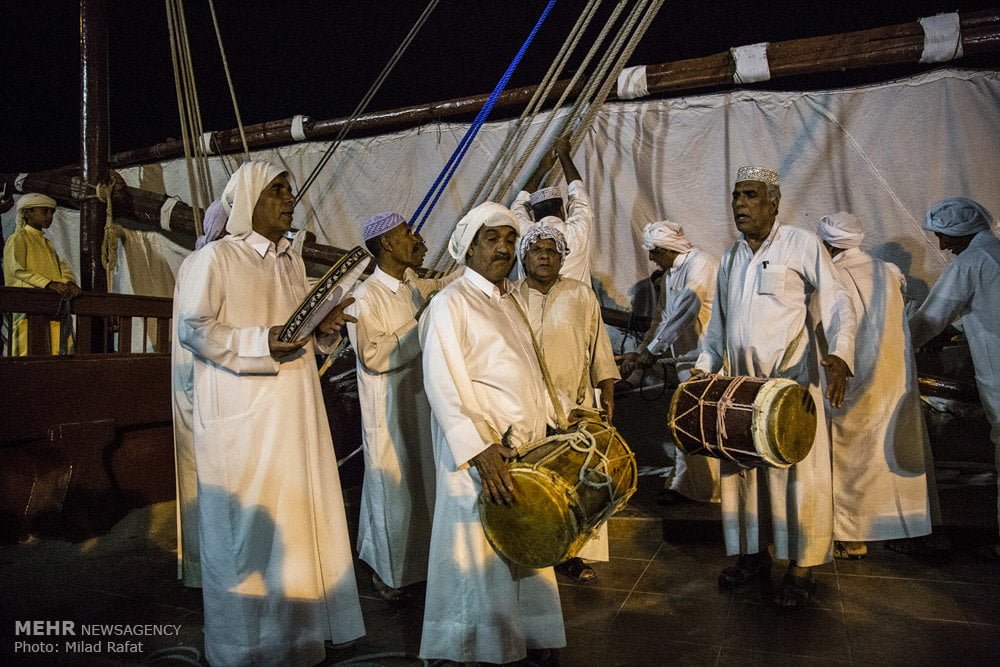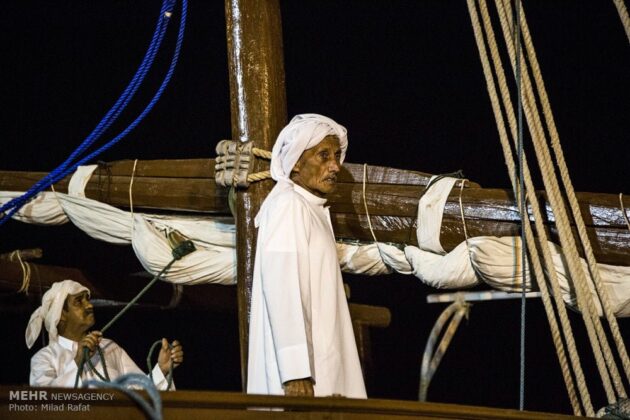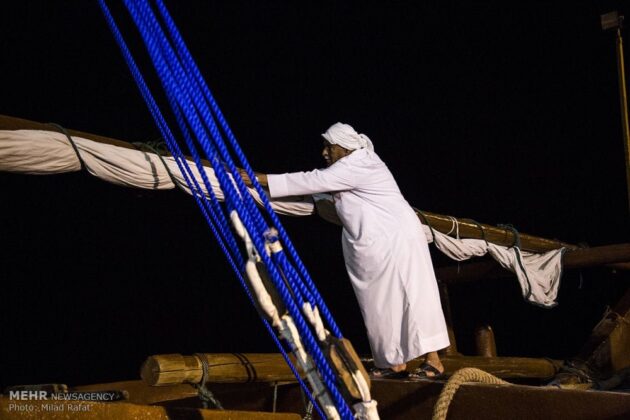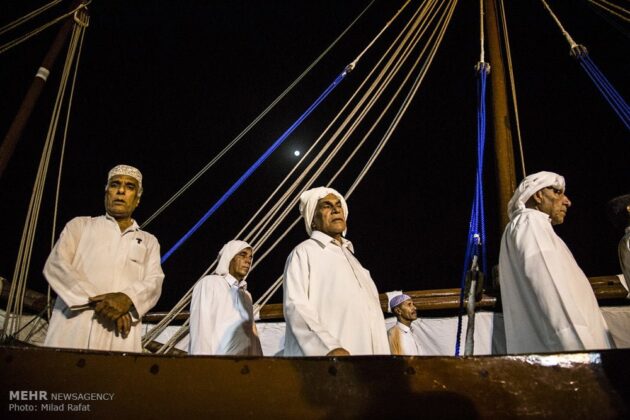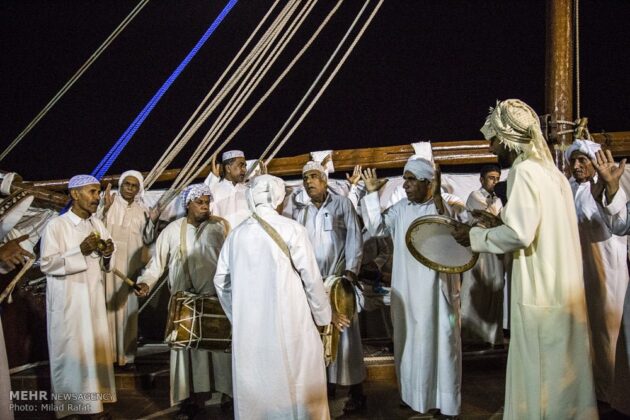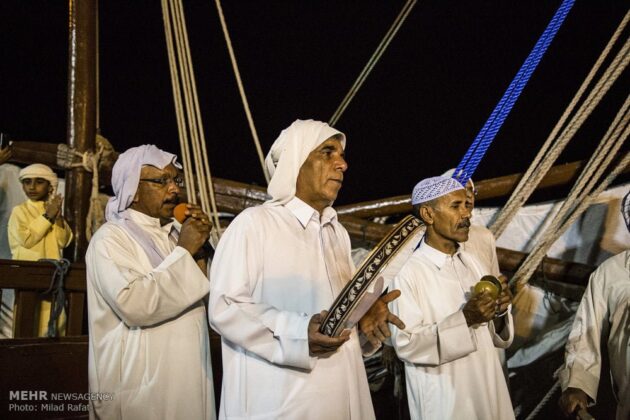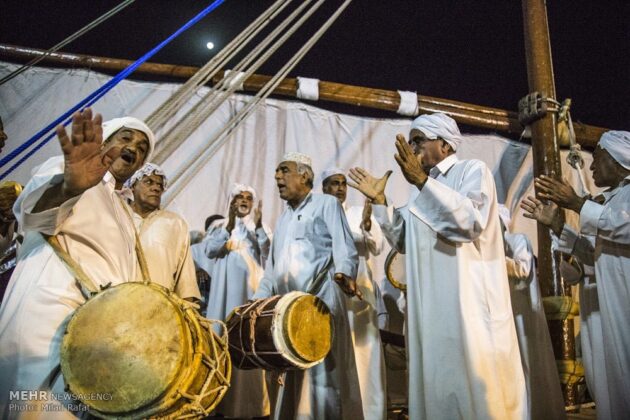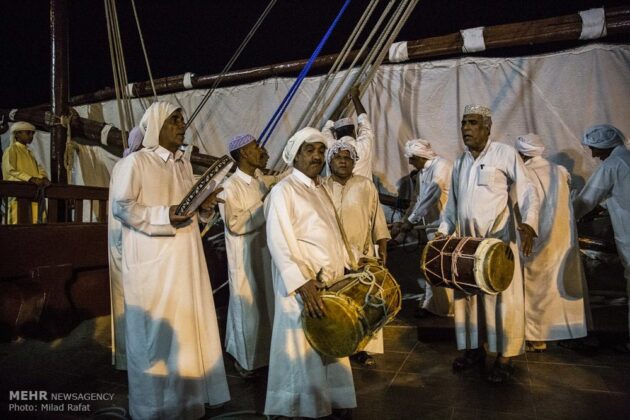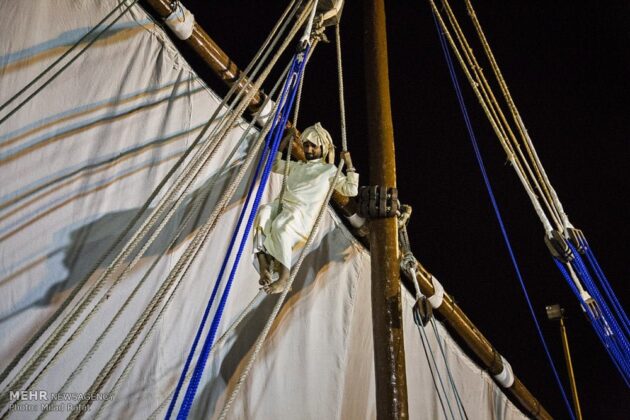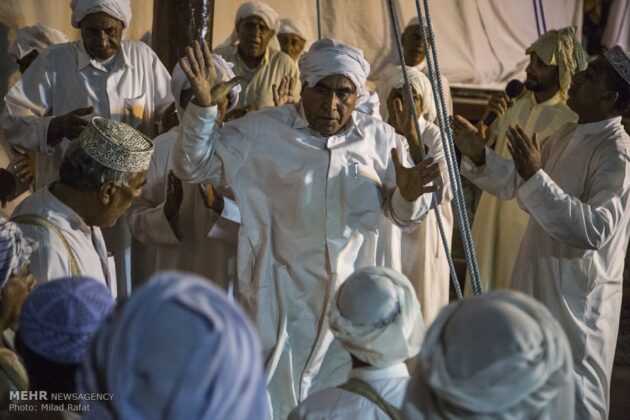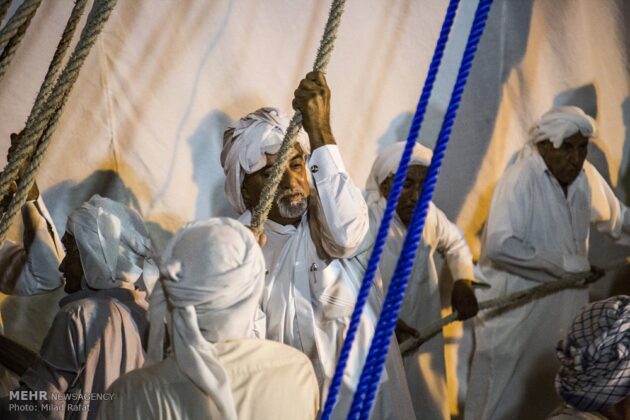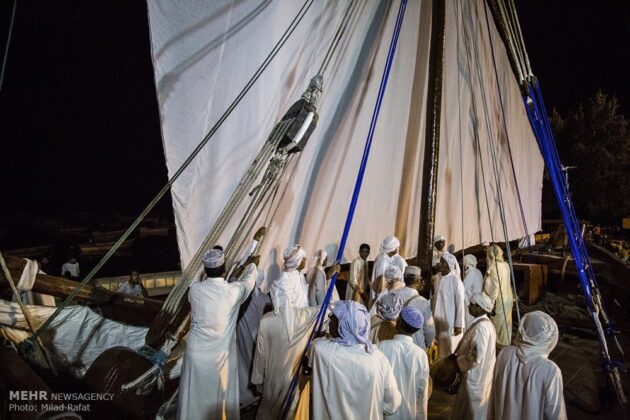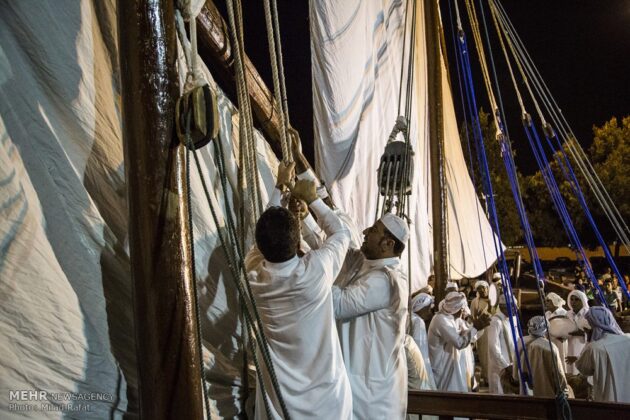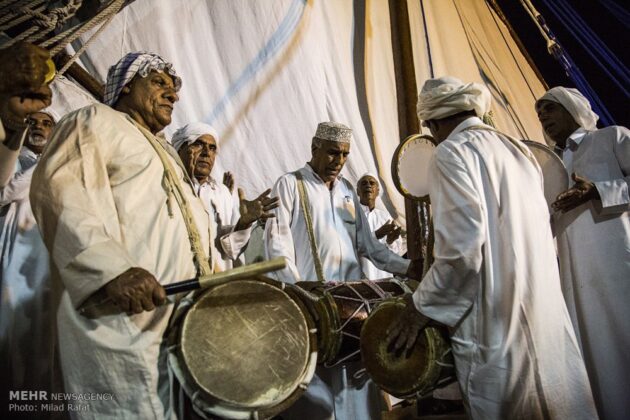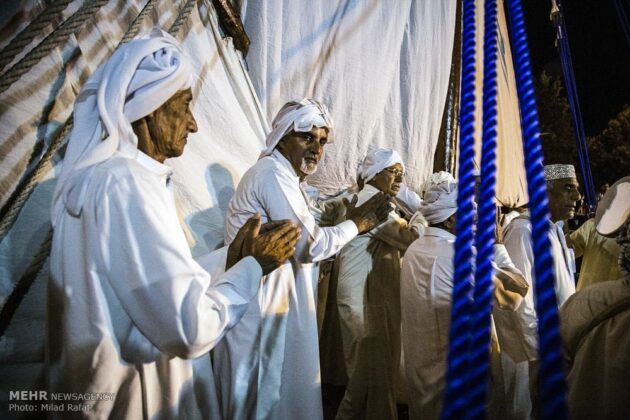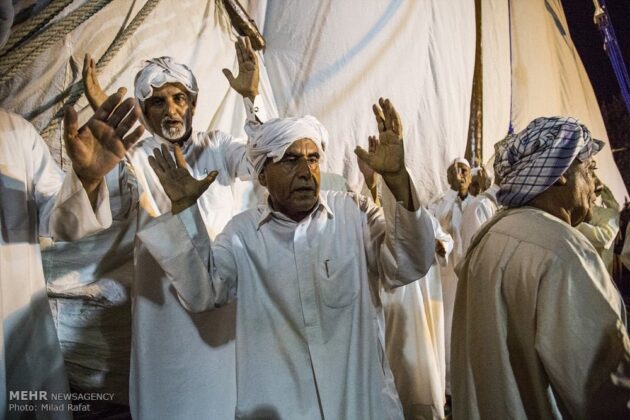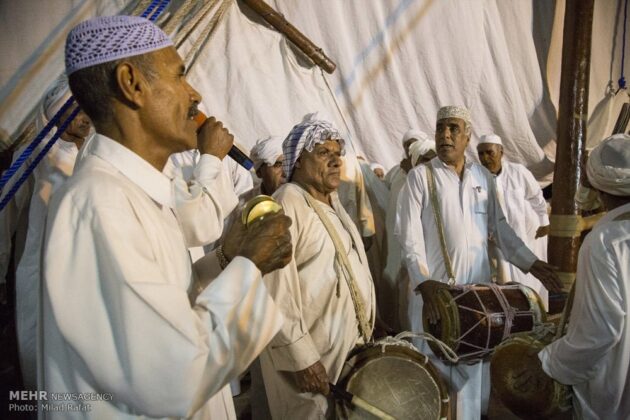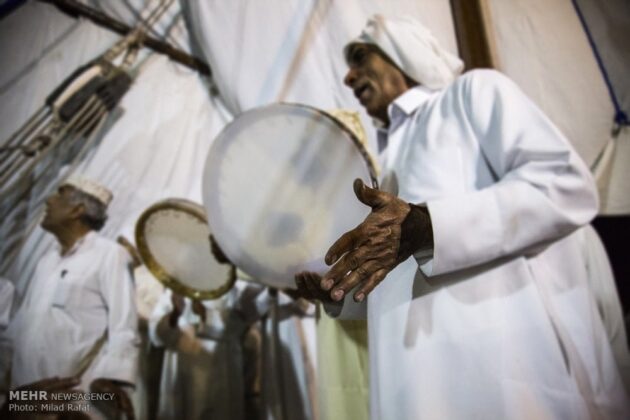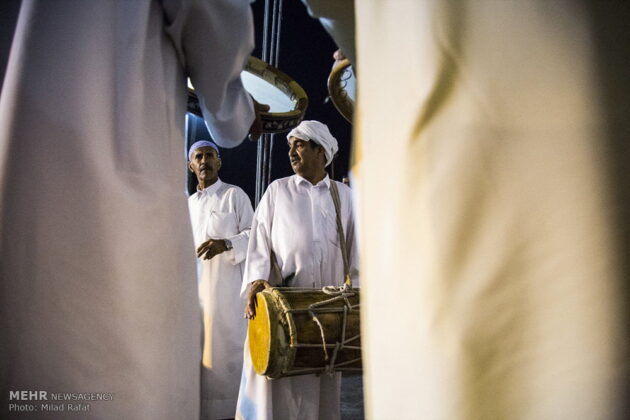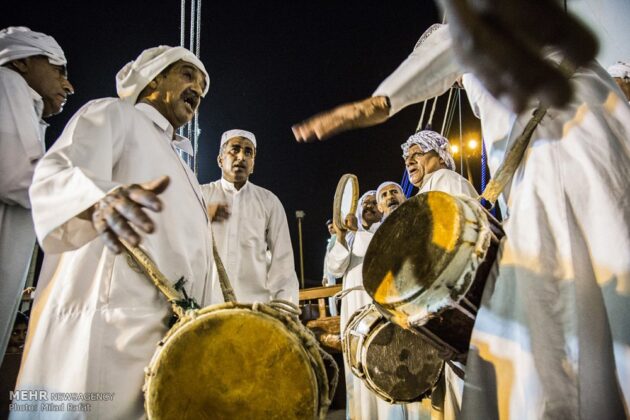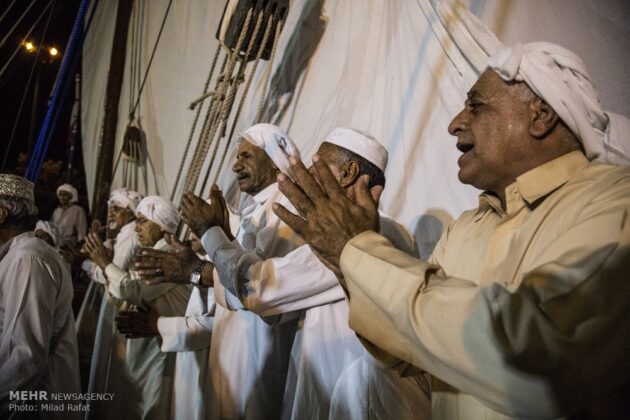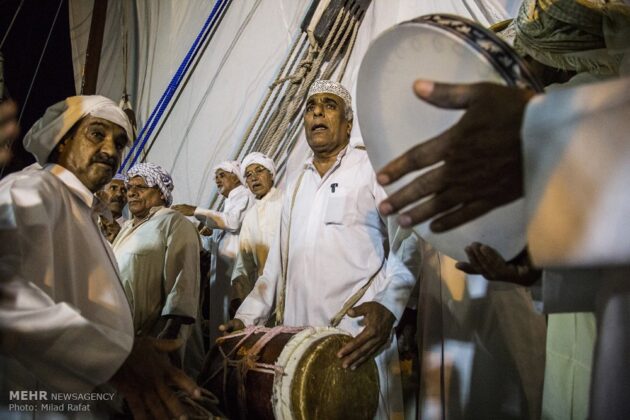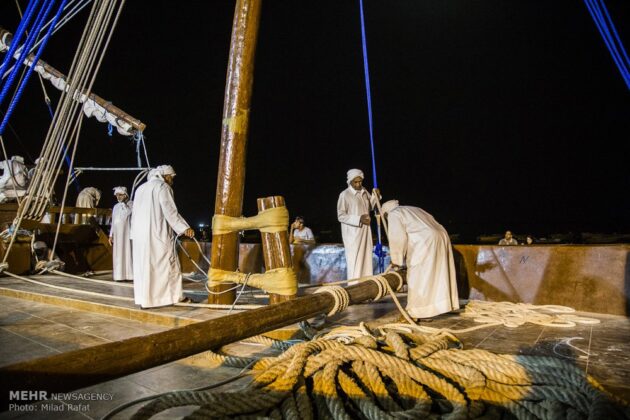Razif is a work-related ritual. Therefore, with the change of the conditions and necessities of seafaring, the sails were replaced by motorboats and things like sailing or pulling anchors besides fishing and collecting the fishing net have disappeared completely.
To preserve and maintain this tradition, people in the south perform a combination of bamboo dance and such practices at wedding parties to preserve this heritage of their fathers, and also remember how their ancestors suffered to make a living. The practice will also help convey this tradition to future generations.
Razif used to be a form of sword dance in the past, and today is performed to create unity and solidarity. So, it is considered a sort of epic music to persuade people to defend their land.
The name Razif refers to the presence of people in two rows at the time of performance.
Here are Mehr News Agency’s photos of the ceremony in the historic port city of Kong in the Central District of Bandar Lengeh County of Iran’s southern Hormozgan Province:
